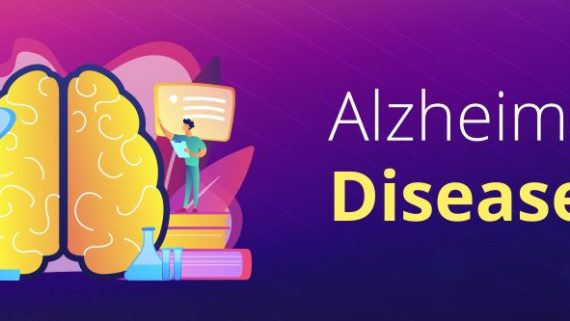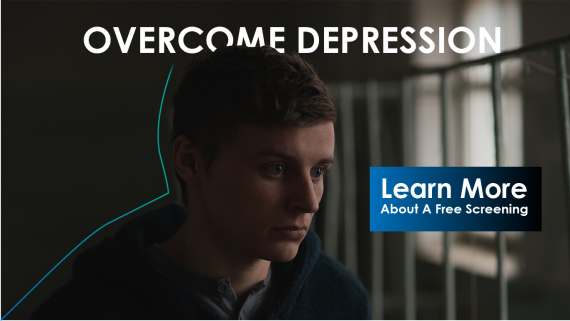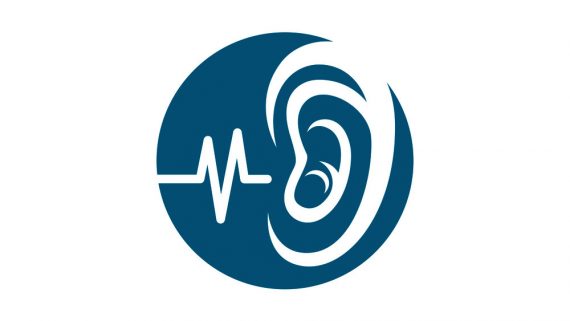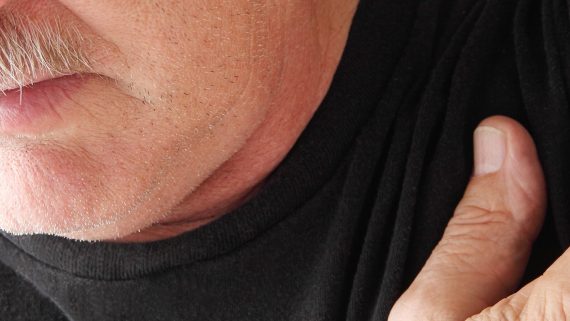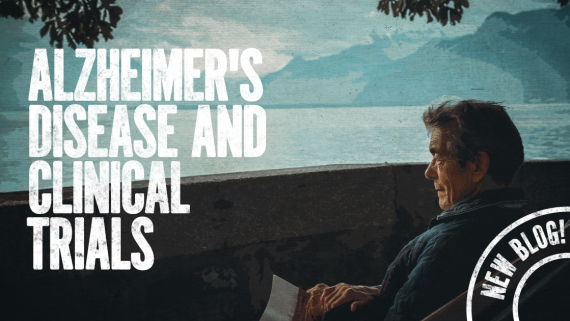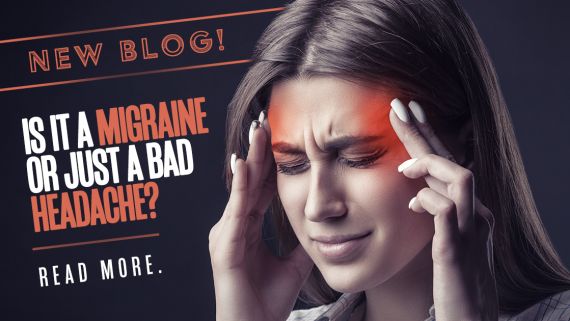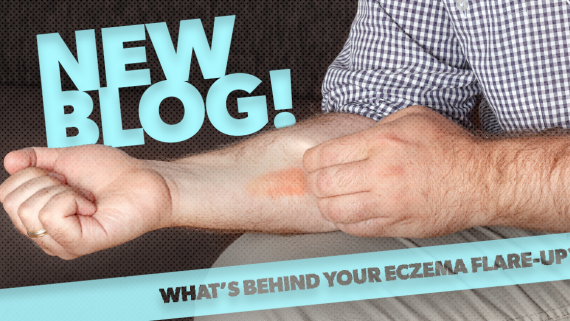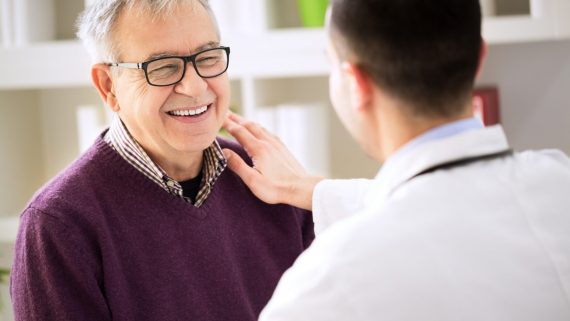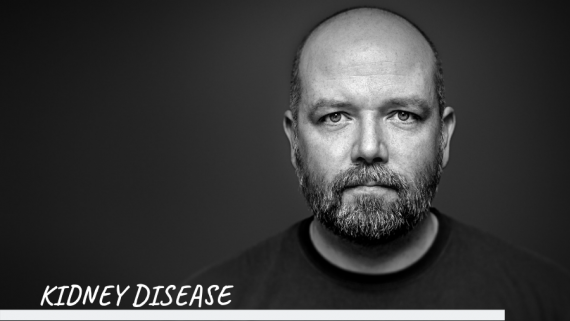
Laura Rocha joins Health Happenings on Methuen TV to discuss Age/Dementia Friendly initiative in Methuen
Local TV show features our Age/Dementia Friendly Methuen initiative
Our Outreach Manager, Laura Rocha recently appeared on the local television show “Health Happenings” for Methuen TV, on a panel discussing our Age/Dementia Friendly Methuen project we have been working on with Methuen Mayor, Jim Jajuga. We will miss him, and look forward to continuing the initiatives with the Mayor-elect Neil Perry.
Watch the discussion here http://archive.methuentv.org/Video/5398
According to the Alzheimer’s Association, a dementia–friendly community is a city, town or village where people with dementia are understood, respected and supported. In a dementia–friendly community people will be aware of and understand dementia, so that people with dementia can continue to live in the way they want to and in the community they choose.
We have partnered with other key community partners to make this initiative work for the city:
Here’s what we have accomplished so far:
Spring 2019- ActivMed met with Mayor Jim Jajuga to present the idea and address the needs of the community
Summer 2019- Mayor Jajuga and several city officials came to ActivMed to receive Dementia Training from the Alzheimer’s Association
Fall 2019- Focus Group to share ideas and to get feedback directly from the citizens of Methuen
Coming soon in 2020- Training of First Responders!
There is still plenty of work to be done, so stay tuned for more updates!
ActivMed’s growth in 2019 has been extraordinary!
2019 is approaching its’ end, and what better way to end it then to recap what has happened at ActivMed Practices & Research, Inc. This year ActivMed turned 25 and what a year of growth it has been! We have accomplished so much and we could not have done it without you!!
This year we are proud to announce the beginning of a new sister company called Allcutis Research!

Allcutis is the new sister company for ActivMed Practices & Research, focusing on dermatology studies.
Within this company we can conduct all our dermatology trials. Over the years we have conducted studies in a variety of indications and this company will allow us to zero in on the specific dermatology studies. Check out the new website for more specialized info regarding our dermatology side of the business. www.AllcutisResearch.com
Aside from doing the business of conducting research to help our patients and future generations, we are passionate about being involved in the community! Throughout the year we participated in local charities to benefit needy children, community health fairs and events, like presentations from our CEO, and training for healthcare workers, that help raise awareness of clinical research.
Shades of Hope 2019 – Impact Melanoma: As sponsors of Impact Melanoma, we were thrilled to spend the evening with others and welcome Dr. Jerome Adams (featured on the left) and his wife Lacy Adams (featured on the right), a melanoma survivor.
Walk to End Alzheimer’s- Each year we sponsor and participate in two local Walks to End Alzheimer’s. We want to raise awareness that you can do more than just “walk” to further research, you can volunteer! For those that come out to support their loved ones, we also offer information about getting an annual Memory Screening.

Toy Drive – happens annually around December, and newly unwrapped gifts are collected for the children of the Boys and Girls Club in need.

Clothing Drive (Catie’s Closet)- Each year we take donations for this local charity that helps students start the school year with new clothes.
Honorable Mentions
We have partnered to host a National Council of Certified Dementia Practitioners’ Alzheimer’s Disease and Dementia Care seminar.
- Our first training was held November 16th, 2019.
- Three of our employees, Karina, Laura, and Jennifer attended the training and are now eligible to receive certification.
- Save the Date in order to take the path to becoming a Certified Dementia Practitioner
- Our next training is happening on February 7th, 2020!
- Attend and receive your Certificate of Attendance, which is the requirement in order to apply to National Council of Certified Dementia Practitioners’ to receive your credentials as a Certified Dementia Practitioners.


- Citizens Scientists Awards Ceremony – An afternoon tea was held to recognize our Citizen Scientist Award nominees on June 20, 2019. This is a Global Alzheimer’s Platform Foundation initiative that we are proud to be a part of. More awareness of clinical trials is needed, and what better way than to celebrate those who are willing to participate?!

![]()
Recipients with our study coordinators Deepa (far left), and Alfa (far right)
Studies and Free Health Screenings
We continue to be a sought- after site for many pharmaceutical companies, both locally and on a global level, for a variety of indications. Some of the studies we enrolled and continue to enroll in our Methuen, MA office include Diabetes, Depression, and Memory. Our Portsmouth and Beverly offices focus on dermatology studies like psoriasis and eczema. For a complete list of our studies, visit, https://activemedredev.wpengine.com/join-a-trial/ Participation is free of charge is you qualify.
We also offer Free health screenings to the community to help encourage people to be pro-active about their health! Our screenings are simple assessments that include Depression, Memory, Blood Pressure, Blood Glucose, and Lung Function. Click here to sign up for your appointment today!
The future is bright for 2020 and we have many more growth projects on the horizon!!
Why participate in clinical research?
We interviewed a research volunteer to hear what he had to say about participating in a clinical research study.

In clinical research, there is still a need to increase awareness of clinical trials being conducted locally. We offer people the ability to participate in research without having to go to Boston or big hospitals. So we wanted to interview a research participant in one of our studies to give a first-hand account of what being a participant looks like. We sat down with Mr. M to see what he has to say about being in a study here at ActivMed.
1. Why did you choose to participate?
“A number of reasons. Number 1: What I go through helps everyone. Number 2: Money. My wife and I live on a fixed income and the money I receive from participating does help. Number #3: I’m doing it for myself as well. I’m focusing on having good health, which always helps me to continue doing what I love.
2. What did you expect research would be like?
“I was hoping it would show me improvement on what I have. I was hoping it would help. The research staff were what I expected, and friendly.
3. How did you feel emotionally by participating?
“Felt comfortable. These are professional people and it gave me the confidence to trust that they knew what they were doing.”
4. Is there anything that surprised you?
“I came to the study with an open mind.”
5. If you could share something with someone participating in a study for the first time, what would it be?
“If you have the problems I have, do it! I could have or could have not been given a placebo. What matters is that the information collected will help somebody else.”
We are so thankful that Mr. M allowed us to ask him some questions about his participation. *Due to privacy requirements, we cannot share his full name.
Participating in a clinical research study is a personal choice!
If you have questions and aren’t sure who to ask, check out our FAQ section here to learn more. Your PCP is a great resource to see if a clinical research study is a good fit for you based on your medical history.
If you would like to know more, you can always call us and we will be happy to answer any questions you may have!
Methuen, MA 978-655-7155
Beverly, MA 978-969-6897
Portsmouth, NH 603-319-8863
Participating in a pediatric research study
It is the responsibility of those conducting clinical research to ensure the safety and confidentiality of their participants. Participating in a study is not as intimidating as it may sound. If anything you might find that participating in a study is quite simple and less nerve-wracking than going for that annual check-up. Our children deserve the best care available, and if current treatment options to any conditions they are experiencing are not enough, then looking to clinical trials might be beneficial!
Some of the benefits of enrolling your child in a study include the following:
- To obtain education about treatment/improving child’s health
- To advance medicine or science
- To help other kids with the condition
- To obtain free medication for your child

What does participating in a study involve?
At ActivMed, participating in a research study is very similar to a regular doctor appointment. Our convenient locations allow you to participate in research without traveling to Boston or a hospital. When you choose to participate in research you are under the care of a doctor, who will monitor your child’s health very closely through regularly scheduled visits, labs, questionnaires, and other methods.
All participation in a research study requires an informed consent to be carefully read and considered by the participant. This document outlines every detail of the study; all the visits and what medical labs, procedures, and medications are involved.
The future of our children and their health are what we consider to be a major priority. Why not help them participate in a study that is no cost to you or your insurance, and can potentially lead to treatments to conditions?
ActivMed Practices and Research Inc. is now enrolling studies for our pediatric psoriasis trials in Portsmouth, NH. Learn more here. For our pediatric eczema trial in Portsmouth, NH click here. To find out more about our Beverly, MA pediatric psoriasis trial click here. 🙂
 .
.
Having to deal with Type 2 Diabetes is not pleasant, especially during the holidays when you are surrounded by sweets and abundant amounts of food. Self-control is expected but it’s not as easy as it seems. Here are 5 tips to help you stay healthy while you celebrate. These tips are suggested by Steven Rothschild, MD. He is a family medicine doctor and the founder of Rush University Family Physicians.
1. Lighten up holiday recipes
Reducing the amount of sugar and carbohydrates, like white flour, white rice and other processed grains, in your meal may be helpful. Trim the amount of fat in baking recipes. For instance, if a recipe suggests using oil, use half that amount and replace it with something else such as unsweetened apple sauce.

2. Let the plate be your guide when making choices
Keeping an eye out on the amount of food you eat is helpful because eating too much can affect your blood sugar levels. An interesting measurement to keep in mind for your lean meat portion is that it be about the size of a deck of cards. Carbohydrate servings , such as pasta or rice, should be equal to the size of a fist.
An easy strategy for portion control is to think of your plate being cut into four sections:
- Lean protein — should take up one quarter of your plate
- Carbohydrates (such as grains, pasta and some vegetables like potatoes and corn) — should occupy another quarter of your plate
- Green vegetables and other non-starch vegetables (such as salads, broccoli, green beans, carrots, cauliflower, asparagus, etc.) — should take up the remaining half your plate. Just make sure not to cook those veggies in oil or butter, or drown them in heavy dressings, dips or sauces.
And make mindful choices when preparing your plate.
Pick your favorite high carbohydrate or high fat food and have a reasonable serving of that, but then cut back in other areas. For example, you could decide that you’d like to have a serving of sweet potatoes instead of a serving of bread or mashed potatoes. So you’re substituting one carbohydrate for another, not eating both.

3. Exercising
Going out for at least 30 minutes a day can be very beneficial. It can improve blood sugars, decrease the risk of heart disease, and help you lose weight. Although, realistically, it’s difficult to exercise 30 minutes a day especially if you aren’t used to the routine. If you start doing some at home exercises more frequently or joining a program, it might be easier to continue in the log run. If you find yourself tied up during the holidays to exercise, try doing a 15 minute workout or three 10-minute stints a few times per week.

4. Managing Stress
Experiencing stress during the holidays is normal, but can be managed with patience, relaxing activities such as yoga, meditation, and deep breathing exercises.

5. Try to quit smoking
If you are a frequent smoker, try to make your new years resolution to quit. While smoking is bad for everyone’s health, it is especially harmful for people with diabetes. Nicotine in cigarette smoke causes large and small blood vessels to harden and narrow, resulting in reduced blood flow to the rest of your body.

These tips aren’t just for diabetics — they’re good advice for anyone who’s trying to lead a healthier lifestyle and prevent serious health problems, including diabetes, down the road. It’s important to start taking steps now to keep yourself and your family healthy for life.
Alzheimer’s is a progressive disease that affects an individuals brain and disrupts their thinking skills and cognitive abilities. It affects over 5.5 million Americans today. Memory loss and confusion are among the main symptoms that people tend to notice right away. As the disease progresses, communication, language, decision making, movement problems, and behavioral problems may also be present.
Although the disease does have its complications, that doesn’t mean that those experiencing it have to stop living their day to day lives.
Here are some tips for living with Alzheimer’s:
1. Develop a daily routine and write down important dates! Make a daily plan to keep track of the few tasks you want to accomplish each day. Having a schedule can reduce the time you spend figuring out what needs to be done and when, and makes you more successful in accomplishing your goals and limiting mistakes.

2. Approach one task at a time and don’t get stuck. Give yourself enough time to complete a task. Don’t pressure yourself to succeed. If something becomes too difficult, take a break and try again later.
3. Recognize the triggers that cause you stress. What are the triggers that cause you anxiety, worry or stress? For example, if others are hurrying you, explain what you are trying to accomplish and ask that they provide you the time needed to be successful. Knowing what causes stress allows you to make plans in advance or decisions about the type of activities/tasks you choose to participate in.
4. Join a recreational center/program with people of the same age who might also be dealing with the same issue. It is always good to be surrounded by a community than live in solitude, especially when dealing with the disease.

Looking forward
These tips will take time to adjust to, but they might help in dealing with Alzheimer’s disease. Other options to look into are participating in clinical research. As part of Alzheimer’s awareness month, ActivMed Practices and Research is enrolling for an Alzheimer’s study at no cost to you or your family!! To learn more and see if you qualify, click here or call us directly at 978-655-7155!

Looking for something to do during your spare time? We got you covered!
ActivMed Practices and Research is seeking volunteers ages 18 years or older to help educate our local community about Dementia & Alzheimer’s Disease!
Call Christine today to get involved at 978-992-4192
Overview
Depression is never easy to handle especially if you have experienced it for a long time. You might be motivated one day, and then suddenly feel an overwhelming sadness the next day. Taking a shower, eating, or even getting out of bed seems like a chore. You may no longer have the same amount of interest in activities you used to, and often you may just want to be left alone. Maybe you feel that the only person who understands you is yourself. That’s understandable. You are not to blame for feeling depressed.
Depression is the most common mental disorder in the country. Millions of Americans suffer from some form of depression every year. That being said, you are not alone. There are many resources to help including free screenings, therapy, support groups, exercising, and many more. However, admitting that you want help is the first step to living a happier and healthier life.
Statistics
Causes
There is truly no one cause for depression. It depends on a unique combination of an individuals genetic makeup and environmental conditions. The following are a few factors that may contribute to depression:
- The brain’s physical structure or chemistry
- History of depression in the family
- History of other disorders (anxiety, post-traumatic stress disorder)
- Stressful, traumatic events (abuse, constant rejection, death of a loved one, financial issues)
- Hormone changes (menstrual cycles, pregnancy)
- Certain medications (sleeping aids, blood pressure medication)
Signs
Most common signs and symptoms of depression:
- Loss of interest in activities that were once enjoyable
- Fatigue and lack of energy
- Appetite or weight changes
- Physical symptoms such as headaches, stomachaches, or back pain
- Recurrent thoughts of suicide
- Difficulty sleeping, sleep disturbances, and/or having a hard time getting out of bed
- Difficulty thinking clearly, making decisions, or concentrating
- Feeling of isolation or wanting to be isolated for long periods of time
Treatment Options
- Sign up for clinical trial and/or free screenings for depression
- Therapy – speaking with a psychologist
- Medication
- Exercise, Yoga, Meditation
- Keeping a journal (writing down your thoughts instead of bottling them up)
- Write short and long-term goals for yourself
- Calling a depression hotline if you don’t feel comfortable talking to a therapist
- Seeking support groups, or talking to someone you feel close to
Clinical Research
Participating in a clinical trial is available as a treatment option. The benefits of volunteering for a study include, but are not limited to the following:
- Helping future and current generations
- You or your loved one may have access to new treatments, not available to the public
- Data collected from the results is used to determine whether a new medication or therapy is safe and effective.
ActivMed Practices & Research along with other clinical practices is determined to find a cure to depression by conducting clinical trials. If you or someone you know is diagnosed with depression or is not sure whether they have depression learn more about our study options might be the right decision. To learn about these study opportunities and see if you qualify, click HERE.
Looking Forward
Recovery is a slow process, but with time treatment options can be very helpful. At the end of the day, it is not a race, and you shouldn’t put too much pressure on yourself to get better right away. Depression affects people of all ages, races, ethnicity, and backgrounds. Depression can be deceiving in the sense that the people who appear to be “fine” are actually the people who are struggling with it the most. It is also good to help others who suffer from depression as well. Together we can be healthier.
References (Chart taken from)
Atopic Dermatitis is a chronic medical condition that has increased over the past two to three decades. It affects between 15-30% of children and 2-10% of adults. This condition causes the skin to become dry, red, sensitive, raw, and extremely itchy.
Why do I have eczema?
As most of us already know, Eczema can be a result of the cold air during the winter, long-hot showers, and multilayered clothing, however there is a nutrition factor that might actually be making the condition worse.
Foods that trigger Atopic Dermatitis Outbreaks
The top foods that trigger these outbreaks include
- milk
- soy
- peanuts
- eggs

There is an extended list of certain foods that trigger the Atopic Dermatitis Outbreak. Click here to learn more.
Foods that relieve the symptoms
Anti-inflammatory foods such as fish, and foods in high in flavonoids and probiotics. Fish that contain the highest levels of anti-inflammatory omega-3 fatty acids are salmon, mackerel, herring, sardines, and albacore tuna.
Treatment options
Although there are many available options for treating Atopic Dermatitis, the best solutions are as follows:
- Using mild soaps, and laundry detergents to avoid irritation of the skin
- Drinking plenty of water to replenish the body’s moisture
- Managing the stress levels with yoga, meditation, and plenty of exercise
- Avoid rubbing your skin to prevent further itching and discomfort
- Avoid and wool like clothing and nylon clothing and bedding
- Take vitamin D supplement daily

Looking ahead
While there isn’t yet a definitive eczema cure, awareness of the possible triggers, beneficial foods, and smart personal habits can keep your itch at bay to make you feel comfortable in your own skin. ActivMed Practices and Research Inc. is enrolling for a study on Atopic Dermatitis. To learn more and see if you qualify, click here for the study in our Portsmouth office and here for the one in our Beverly office.
As the cold and flu season is closely approaching, all must take precaution especially those individuals who are much older. Development of a respiratory tract infection is very common during this time.
Upper respiratory infections (URIs) are infections affecting the upper part of the respiratory tract including the nose, sinuses, pharynx, and larynx. They are very common infections, with the US alone seeing more than 3 million cases each year. Some examples of URIs are the common cold, rhinitis, sinus infections, and laryngitis.
Symptoms of URI
- Nasal congestion
- sneezing
- coughing
- scratchy or sore throat
- headache
- fever
- mucus production

Prevention
- avoiding people who are ill;
- if you are ill, remain at home until you are no longer contagious;
- avoid touching your nose, eyes, and mouth with unwashed hands;
- cover your cough and sneeze; sneezes and coughs should be covered with the elbow or sleeve – not the hand
- wash your hands often, and properly (20 seconds or more with soap and warm water).
- modify your lifestyle through smoking cessation and stress management, which may decrease your susceptibility to catching the common cold
Clinical Research Study
Although flu vaccines are an option, clinical trails are enrolling for those suffering with respiratory tract infection. If you or a loved one is dealing with this, participating in a research study might be an option. ActivMed Practices & Research is now enrolling those who qualify for the study. To learn more click here.
Type 2 diabetes is a chronic condition that affects the way your body metabolizes sugar, which is an important source of fuel for your body. With type 2 diabetes, your body either resists the effects of insulin — a hormone that regulates the movement of sugar into your cells — or doesn’t produce enough insulin to maintain normal glucose levels. Type 2 diabetes used to be known as adult-onset diabetes, but today more children are being diagnosed with the disorder, probably due to the rise in childhood obesity. There’s no cure for type 2 diabetes, but losing weight, eating well and exercising can help manage the disease.
Clinical Research
If your current treatment options don’t seem to be working for you, consider participating in a clinical research study. ActivMed Practices and Research is enrolling for a Type 2 Diabetes Study.
Learn more here and see if you are eligible to participate.
Symptoms
- Increased thirst
- Blurred vision
- Fatigue
- Slow-healing sores
- Frequent infections
- Frequent urination
- Areas of darkened skin, such as the armpits and neck
Tips for Management & Prevention
Healthy lifestyle choices can help prevent type 2 diabetes, and that’s true even if you have diabetes in your family. Some tips include:
- Eating healthy foods. Choose foods lower in fat and calories and higher in fiber. Focus on fruits, vegetables and whole grains.
- Getting active. Aim for a minimum of 30 to 60 minutes of moderate physical activity — or 15 to 30 minutes of vigorous aerobic activity — on most days. Take a brisk daily walk. Ride a bike. Swim laps. If you can’t fit in a long workout, spread your activity throughout the day.
- Losing weight. If you’re overweight, losing 5 to 10 percent of your body weight can reduce the risk of diabetes. To keep your weight in a healthy range, focus on permanent changes to your eating and exercise habits. Motivate yourself by remembering the benefits of losing weight, such as a healthier heart, more energy and improved self-esteem.
- Avoiding being sedentary for long periods. Sitting still for long periods can increase your risk of type 2 diabetes. Try to get up every 30 minutes and move around for at least a few minutes.
We are excited to announce our new Free Podcast.
The ActivMed Clinical Research Podcast is designed to introduce the public to clinical studies, the testing of new medications and medical devices on human subjects prior to their approval for use by the FDA. The podcast describes what clinical studies are, how they are conducted and the benefits they offer study volunteers and humanity as a whole.
Studies show that if people knew a clinical trial was an option they would be willing to consider participating.
Located North of Boston in Massachusetts and southern New Hampshire, ActivMed allows people the ability to participate in research locally.
Our host Jack Beaton is a Research Assistant and is excited to share many topics to help create awareness for clinical research. Tune in for lots of great topics!
Our first episode will answer frequently asked questions regarding the clinical study process.
What is it?
Hidradenitis Suppurativa (HS) is a chronic, inflammatory skin disease characterized by painful nodules and abscesses which form most commonly in sensitive areas: under arms and breasts, along buttocks and groin, though HS may appear anywhere there is hair.
When symptoms first appear, they appear as painful, recurrent pimples or cysts in telltale areas. Because of its appearance and location, HS is often misdiagnosed as ingrown hairs, folliculitis, staph infection, cellulitis, or an STD. But unlike those conditions, HS cannot be cured and the lesions left behind will often refill, have difficulty healing, and leave behind scars.
Women are diagnosed with HS 3x more often than men and their symptoms tend to start around puberty or other times of hormonal changes like pregnancy, postpartum, or changes in hormonal birth control.
Treatment options
Treatment with medications, surgery or both may help control symptoms and prevent complications. Some doctors may prescribe the following medications:
- Antibiotic creams. Mild symptoms might be managed with topical creams that fight infections, such as clindamycin and gentamicin.
- Systemic drugs. For more widespread diseases, antibiotics taken by mouth.
- Pain medication.If over-the-counter pain relievers don’t help, your doctor may prescribe a stronger type.
Clinical Research Studies
ActivMed Practices and Research is enrolling for a clinical research study that may be an option for those struggling with Hidradenitis Suppurativa. To learn more about the study and see if you qualify, click here.
Outlook
Although there is no known cure for HS, if you feel that you have mild hidradenitis suppurativa it can be treated with self-care measures by doing the following:
- Managing your pain
- Following a daily skin care routine
- Avoiding tight clothing
- Avoiding injuring the skin
- Keeping a healthy weight and staying active
- Considering altering your diet
- Avoiding all tobacco products.
Celiac disease is a condition where the immune system responds abnormally to gluten. It can cause damage to the lining of the small intestine. The actual cause of celiac disease is unclear, but it seems to be a combination of genetics and environment. Celiac disease can be painful and difficult to handle. You don’t have to deal with it alone. If you feel like your current treatment options are not working, a study option might be available to you if you qualify. You can find more information about the study currently enrolling here.
What is gluten?
The treatment for celiac disease is a strict and complete avoidance of gluten. Gluten is a protein particle found in wheat, barley, rye, related grains and wheat additives. Wheat additives are the most common additive in American food products and can hide in a lot of food products that we consume as a society. This makes it very important for those with celiac disease to read all food labels closely.
Foods containing gluten include:
• Flour
• Breads
• Crackers
• Muffins
• Pasta
• Cereals
• Baking mixes
• Sauces, spices, condiments and salad dressings
• Some medications and vitamin supplements
Gluten-free foods include:
• Rice
• Corn
• Potatoes
• Quinoa, millet, buckwheat and soybeans
• Milk, cheese and other dairy products
• Fruits and vegetables
• Meat and eggs
Common Symptoms of Celiac
• Abdominal pain
• Bloating
• Diarrhea or constipation
• Fatigue
• Weight loss (or failure to thrive in children)
Statistics
Based on the chart below, approximately 17 percent of people are misdiagnosed or undiagnosed. Celiac patients may also be asymptomatic, which means that they may have no obvious symptoms of celiac disease. This is why is it important to consult with your primary care provider first if you feel that you are experiencing the symptoms surrounding celiac disease.
Overview of Depression
Dealing with depression may feel like you constantly battle with a heavy burden or a shadow of sadness and hopelessness that latches on to you for a long time. Getting out of bed seems like a chore, you may no longer have the same amount of interest in activities as you used to, and often you may just want to be left alone. Maybe you feel that the only person who understands you is yourself. That’s understandable. Depression is an illness, NOT a weakness, and you are not to blame for it.
Depression is the most common mental disorder in the country. Millions of Americans suffer from some form of depression every year. That being said, you are not alone. There are many resources to help including free screenings, therapy, support groups, exercising, and many more. However, admitting that you want help is the first step to living a happier and healthier life.
National Depression Screening Day takes place in October. To view the post discussing this, click HERE.
Depression Statistics
Below is a chart of the percentage of U.S. Adults who have dealt with depression in 2017. The variables range from gender, age, race/ethnicity. Based on the results, most of the people experiencing this major depressive episode were in the 18-25 age range and were identified females. This is not to say that people of other age groups or identified genders are not affected just as much.
Possible Causes of Depression
There is truly not one cause for depression. It depends on a unique combination of an individual’s genetic makeup and environmental conditions.
For instance:
- The brain’s physical structure or chemistry
- History of depression in the family
- History of other disorders (anxiety, post-traumatic stress disorder)
- Stressful, traumatic events (abuse, constant rejection, death of a loved one, financial issues)
- Hormone changes (menstrual cycles, pregnancy)
- Certain medications (sleeping aids, blood pressure medication)
Signs to Look For
Most common signs and symptoms of depression:
- Loss of interest in activities that were once enjoyable
- Fatigue and lack of energy
- Appetite or weight changes
- Physical symptoms such as headaches, stomachaches, or back pain
- Recurrent thoughts of suicide
- Difficulty sleeping, sleep disturbances, and/or having a hard time getting out of bed
- Difficulty thinking clearly, making decisions, or concentrating
- Feelings of isolation or wanting to be isolated for long periods of time
Available Treatment Options
- Sign up for a clinical trial and/or free screenings for depression
- Therapy – speaking with a psychologist
- Medication
- Exercise (physical and mental), Yoga, Meditation
- Keeping a journal (writing down your thoughts instead of bottling them up)
- Write short and long-term goals for yourself
- Calling a depression hotline if you don’t feel comfortable talking to a therapist
- Seeking support groups, or talking to someone you feel close to
Clinical Research May Be an Option!
As mentioned, participating in a clinical trial is available as a treatment option. The benefits of volunteering for a study include, but are not limited to the following:
- Helping future and current generations
- You or your loved one may have access to new treatments, not available to the public
- Data collected from the results is used to determine whether a new medication or therapy is safe and effective.
ActivMed Practices & Research is passionate about helping those with depression by conducting clinical trials. If you or someone you know is diagnosed with depression or is not sure whether they have depression learn more about our study options might be the right decision. To learn about these study opportunities and see if you qualify, click HERE.
Looking Forward
Recovery is a slow process, but these treatment options can be very helpful. However, it is not a race, and you shouldn’t put too much pressure on yourself to get better right away. Depression affects people of all ages, races, ethnicity, and backgrounds. Depression can be deceiving in the sense that the people who appear to be “fine” are actually the people who are struggling with it the most. It is also good to help others who suffer from depression as well. Together we can be healthier.
Reference for this post:
https://www.psycom.net/depression.central.html
Respiratory infections, like RSV and pneumonia, continue to wreak havoc on the elderly population year after year. Some call it a “hidden epidemic”. To better understand why the elderly are more vulnerable to respiratory infections, we need to look at what happens to our bodies internally as we grow older.
The Toll of Time
As we age, our immune systems become less effective, called immunosenescence. The immune response decline is different for everyone after age 65. However, everyone after that age is more susceptible to infections than when they were younger.
Risk Factors
With a less effective immune system combined with the increase and severity of a respiratory tract infection, the results can be life-threatening. Some risk factors include:
- Chronic Conditions- Heart disease, diabetes, stroke, and COPD are a few examples. Conditions that affect the ability to produce a strong cough can be especially dangerous.
- Infectious Environments- Any place where sick people gather for treatment or are living, such as hospitals and nursing homes.
Prevention
Experts agree that prevention is still the best defense against respiratory infection. The CDC has the following recommendations when it comes to reducing the chances of contracting a respiratory infection:
- Wash Your Hands Often– Use soap and water for 20 seconds. If soap is not available, use alcohol-based hand sanitizer
- Keep Up With Regular Vaccinations: Keep up to date on recommended vaccines
- Keep Hands off Your Face- Avoid touching eyes, nose, and mouth with unwashed hands
- Avoid Close Contact with Sick People- Avoid kissing, sharing drinks, or sharing eating utensils with people who have symptoms of being sick
- Cover Coughs and Sneezes- Cover mouth and nose with a tissue when you sneeze or cough. Throw tissues in the trash after
- Clean/Disinfect Surfaces- Disinfect surfaces that are frequently touched, such as doorknobs
- Stay Home When You Are Sick- Staying home (when possible) from work or other public places when you are sick prevents it spreading to others
At ActivMed Practices & Research, Inc., we are committed to not only working with patients to find current treatments that will deliver the most impactful results, but also working to develop new treatment options through clinical studies.
We are currently seeking patients for upcoming studies evaluating trial medications that may prevent RTI in those 65 and older. Qualified candidates who participate will receive study-related care at no cost. There is also compensation for travel. To learn more and see how you or someone you love may qualify for a study, please click HERE.
References:
https://www.cdc.gov/rsv/factsheet-older-adults.html
https://www.infectioncontroltoday.com/infections/older-adults-higher-risk-respiratory-infections
https://www.aging.com/what-causes-pneumonia-in-the-elderly/
Despite current treatment options, there is still no cure for Alzheimer’s. Current treatment options only temporarily slow the symptoms of dementia and keep them from worsening. Finding more effective options and even a cure comes down to testing new potential treatments via clinical trials.
What is Alzheimer’s?
Alzheimer’s Disease (AD) is the most common form of dementia and is not a normal part of aging. It causes memory loss and other cognitive problems that gradually worsen over time. Eventually, every aspect of a person’s daily life is impacted when they have AD. Early stages impact memory, while later stages come with mood changes and behavioral changes. It can even affect a person’s ability to walk, speak, and swallow.
Although the majority of those affected with AD are over 65, approximately 200,000 Americans under 65 have early-onset Alzheimer’s. On average, a person lives 4-8 years after diagnosis, and up to 20 years depending on various factors. It is the 6th leading cause of death in the U.S.
Don’t Just Hope, Help.
More participants are needed in clinical trials to help evaluate potential treatment options and to find a cure. Through the clinical trial process, more effective treatments and prevention opportunities can be found.
Beta-amyloid protein and biomarker studies that explore what causes AD have provided cutting-edge treatments and led to better medical care. However, none of these advancements are possible without volunteers. Here are some of the benefits of participating in a clinical trial:
- You can help future generations
- Participation may help you get more involved in your healthcare
- You or your loved one may have access to new treatments not available to the public
Volunteers that have a family history of AD, dementia and even those with no history are all needed. The data that is gathered from your results are used to determine whether a new medication or therapy is safe and effective.
ActivMed Practices & Research, like many other research facilities, has joined the fight to cure Alzheimer’s by conducting clinical trials. If you or someone you love is diagnosed with Alzheimer’s and are interested in hearing more about our study opportunities, click HERE.
References:
https://www.alz.org/alzheimers-dementia/what-is-alzheimers
PRESS RELEASE
For immediate release
Contact:
Natalie Bowers, Acorn Communications
natalie@acorn-communications, 859-486-0058
New book helps ‘wake up’ those with memory loss; provides ‘exciting aid in communication with loved ones’
North Shore, Massachusetts – “Hilda’s Story: New Bedford, Massachusetts”, by Marblehead Resident Siobhan McDonald, is the first book in a series that is specifically designed to foster communication between senior citizens dealing with memory loss and their loved ones who want to communicate with them. The book launched online June 3, 2019 on the Barnes and Nobles website and it is also available through the publisher site, Granger St. Studios.
“Hilda’s Story” is a reflective tale of a woman’s childhood and the domestic activities she performed during her younger years. The story is written as a means to help caregivers, family and friends break through the barriers all too commonly seen in patients with memory loss diseases such as Alzheimer’s and Dementia. The book utilizes illustrations, vintage photographs and a simple plot with built-in questions to enable family members and caregivers to build conversations with their loved ones.
Many people who have read the book to their loved ones report a positive experience. “Usually when I visit my father, he is vacant and distant; often asks the same question ten times. But when I read this book to him, he just came alive! He wanted to talk about his memories of his childhood and what he ate for lunch and the little details of his life. It got him really talking to me and I felt like we shared real quality time together and I felt like I had him back for an hour.” said Caregiver Greg from Gloucester.
The story is simple and intimate. The main character, Hilda, is the daughter of middle-class Portuguese immigrants growing up in the post-World War II era in the coastal Massachusetts city of New Bedford. Details of her domestic life offer the reader and their companion plenty of opportunities to build conversation. Vintage photographs are combined with line drawings to create visual contrast, and other images of objects like a plaid lunch box and a bowl of rice pudding (a staple dessert for children in the 40’s and 50’s) are complemented with questions to encourage lively discussion, such as, “Did you have a favorite clothing store?”, or “Tell me about some of the responsibilities you had growing up.”
By sharing ‘Hilda’s Story’, the interaction between reader and listener can move past the major communication barriers suffered by those with memory loss. Read aloud for entertainment, understanding, comfort, and connection, or simply offer the book for someone to enjoy at their own pace.
About the Author & Publisher
Siobhan McDonald came up with the concept of this series (Before Today: Reminiscing & Connecting) through her experience providing Visual Arts workshops to Seniors in Skilled Nursing and Assisted Living Residential settings. She partnered with her sister-in-law, Becky McDonald, to create this book. Siobhan lives in Marblehead, Massachusetts. Siobhan runs Granger St. Studios, the publishing arm of her written ventures. https://www.grangerstreetstudios.com/
Hilda’s Story: New Bedford, Massachusetts is published by Granger St. Studios.
ISBN: 9781733039000
Published: 5/31/2019
Life is a constant roller coaster of challenges and victories. Feeling sad or hopeless is something we all experience at some point in our lives For many, these feelings persist and may require medical intervention.
The Black Hole
Depression is one of the most common mental health disorders in the U.S., affecting men, women, and children from all walks of life. Depression can deeply impact every aspect of life. Symptoms can include difficulty concentrating, anger and irritability, loss of energy, and loss of interest in the things we once loved.
Depressive episodes are when these symptoms do not go away for long periods. Below are some quick facts about those affected:
- 3 % of American Adults (18+) are affected
- Depression is more prevalent in women than men
- 9 million children (ages 3-17) have been diagnosed with depression
- Adults with depressive disorders have a 64% higher chance of developing coronary artery issues
Types of Depression
Depression affects everyone differently. How each person responds to treatment is also different, so understanding the various types of depression can be an important piece in finding the most effective treatment. Below are some common types of depression along with a general understanding of each:
- Major Depression– Recurrent depressive episodes that if left untreated, can last up to 6 months.
- Atypical Depression– Those who have it experience a temporary mood elevation from positive events such as receiving good news, hanging out with friends, etc.
- Dysthymia (Recurrent Mild Depression)– Symptoms are not as strong as major depression but can last for long periods. Those with this type of depression feel moderately depressed more days than not.
- Seasonal Affective Disorder (SAD)– Feeling of sadness, stress, and being tense beginning in fall or winter when daylight hours are reduced. This usually lasts until spring, when there is more sunlight.
Clinical Studies and Depression
Up to 80% of those treated for depression show improvement in symptoms within 4-6 weeks of beginning psychotherapy, medication, attending support groups, or a combination of these. Sadly, 2 out of every 3 people with depression do not actively seek treatment or receive proper treatment. Consulting your physician is the only way to truly be diagnosed and treated properly.
A clinical study conducted by ActivMed in our Methuen location could also benefit individuals who battle with this disorder. If you or someone you know is suffering from depression or feel like pieces are missing from your current depression treatment, these studies may be a great opportunity. Qualified candidates who participate will receive study-related care at no cost and compensation for travel. To learn more about our depression studies, please click HERE.
References:
https://www.helpguide.org/articles/depression/depression-symptoms-and-warning-signs.htm
https://www.dbsalliance.org/education/depression/statistics/
Defining Prurigo Nodularis
Prurigo Nodularis (PN) is a skin condition where hard, itchy lumps form on the skin. Prurigo means itch, and nodularis means nodules. The itching caused by PN can be so intense that people often scratch themselves to the point of bleeding. The itching is made worse by sweating, heat, or irritation from clothes. If you have symptoms of PN, or have been diagnosed, read on for more info!
The Cause
The itching itself is what causes the nodules to form. When the skin is scratched repeatedly, it causes injury and the skin then protects itself by creating a thicker layer, which is where the nodules come from. This is called the itch-scratch cycle. Although the cause of PN is not always clear, certain conditions will increase the chances of someone developing PN. Some of those include:
- Psychological conditions
- Reduced liver or kidney function
- Allergies
- Skin diseases such as:
- Eczema
- Bullous Pemphigoid
- Dermatitis Herpetiformis
Diagnosis and Treatment
Excessive scratching also causes nerves to thicken in affected areas and these thicker nerves will then send stronger than normal itching sensations. A skin biopsy is usually performed to determine if PN is the cause of the itching, as a biopsy will show the thickened nerves. Other tests, such as blood, liver, and kidney tests, will also help to identify any underlying cause of the itch.
Treatment of PN is different for every patient and it may take several attempts to find a treatment plan that works for you. Common PN treatments are:
- Corticosteroid Creams are applied to nodules and covered with airtight and waterproof bandages to reduce inflammation.
- Corticosteroid Injections are injected directly into nodules to reduce inflammation.
- Oral Corticosteroids are ingested to reduce inflammation.
- Other Ointments with menthol or phenol cool and soothe itchy skin.
- Capsaicin Cream uses the heat in your body to block nerve messages.
- Oral Antihistamines are ingested antihistamines.
- SSRIs alter serotonin signals in the skin.
Habit reversal therapy is often needed, in addition to medications, to help patients reduce the amount of scratching, which can be very habit-forming. Other treatments can include cryotherapy, photochemotherapy, and immunosuppressants if the common treatments are not effective.
Even with a healthy amount of available treatment options, most people never have a complete resolution of the nodules; therefore, clinical studies to test new treatments are needed to find different and better ways to treat or even cure PN.
ActivMed Practices & Research, Inc. is currently seeking patients interested in helping to evaluate new options that may potentially help treat certain PN symptoms. Qualified candidates who participate will receive study-related care at no cost. Compensation is available for travel. If you or someone you know is suffering from the chronic itch and nodules associated with PN, this study may be a great opportunity. To learn more and to see how you or someone you love may qualify for a PN study, we are currently conducting clinical trials:
Learn more about getting involved in Portsmouth here.
Learn more about getting involved in Beverly here.
References:
https://www.aocd.org/page/PrurigoNodularis
https://rarediseases.info.nih.gov/diseases/7480/prurigo-nodularis
TheAlliance for Clinical Research Excellence and Safety (ACRES) announced it will begin offering accreditation of clinical research sites. It reflects the latest development by the Massachusetts-based global non-profit to build a quality-based system to accelerate the development of and access to new medical products.
READ THE FULL PRESS RELEASE HERE
Our CEO, Terry Stubbs has worked diligently with the team at ACRES to bring this to fruition. We are proud to be one of the first sites to become accredited!
Intro
When a loved one is diagnosed with Parkinson’s Disease (PD), finding ways to provide help that is useful and impactful is not out of reach. You have resources that you can access, including recommendations straight from the Parkinson’s Foundation. If you have a loved one with Parkinson’s, you can help!
What is Parkinson’s?
PD is a neurodegenerative disorder. The disease affects the dopamine-producing neurons that are responsible for signaling the brain to move. Persons diagnosed either have low levels of the dopamine-producing neurons or have an absence of them.
Early stages of PD include loss of smell and writing that grows smaller over time as well as a minor tremor in your finger, thumb, hand, or chin while at rest.
Symptoms
The disease progression of PD differs for each person and develops slowly. There are five stages of the disease that range from zero (no symptoms) to 5 (advanced symptoms). While the disease itself is not fatal, complications from the disease can be serious. Generally common symptoms after onset can include:
- Tremor- Occurs mainly at rest and looks like the individual with PD is holding a pill between their thumb and forefinger and rolling it around continuously, known as ‘pill-rolling’
- Bradykinesia– Slowness of movement.
- Limb Rigidity-Stiffness in arms or legs.
- Gait/Balance Problems-Trouble walking or maintaining balance.
How you can Help
Now let’s take a look at some ways you can support your loved one after they have been diagnosed with Parkinson’s. Here are a few things the trusted experts recommend:
- Obtain Knowledge- Learn everything you can about Parkinson’s. For example, learning how the disease progresses can help you spot worsening of symptoms. parkinsons.org is a great resource.
- Call a Helpline- The Parkinson’s Disease Foundation helpline has specialist available to help navigate all things PD. This is a resource for those diagnosed and their caregivers. The number is 800.4PD.INFO.
- Set Up a Time to Help- Sometimes offering is not enough. Set up a date and time to help clean, meal prep, etc.
- Encourage Exercise- Research confirms exercise helps the brain use dopamine more effectively. It also helps with balance and strength. Encouraging your loved ones to stay active is important in the progression of PD.
- Listen- Whether it is a friendly ear, a shoulder to cry on, or a person to wipe the tears of frustration, listening is essential.
You Can be the Difference
As you can imagine, depression and anxiety are common in patients diagnosed with Parkinson’s. Your loved ones need your support during their journey through PD. You can be the difference in their quality of life by taking action now.
At ActivMed Practices & Research, Inc., we are committed to not only working with patients to find current treatments that will deliver the most impactful results, but also working to develop new treatment options through clinical studies.
If you or someone you love has been diagnosed with Parkinson’s Disease, ActivMed Practices & Research, Inc. currently has enrolling studies for those seeking new treatment options. Qualified candidates who participate will receive study-related care at no cost. There is also compensation for travel. To learn more and see how you or someone you love may qualify for a study, please click HERE.
References:
https://www.healthline.com/health/parkinsons-disease/how-to-support#1
https://www.parkinson.org/understanding-parkinsons/what-is-parkinsons
https://www.parkinson.org/Living-with-Parkinsons/Resources-and-Support
Molluscum (muh-luhs-kum) contagiosum (kən-tā-jē-ō-səm) is a skin disease caused by a virus that spreads easily from person to person.
About seven weeks after a person is exposed to the virus, around 10 to 20 small, dome-shaped growths begin to appear on the skin (occasionally, the bumps may take months to appear). They are generally located on the face, armpits, neck, arms, or hands. The bumps are painless, but some can itch. The surface of the bumps initially is smooth and waxy or pearly. They are flesh-colored or pink, although as the body’s immune system begins to fight the virus, the bumps will turn red. Once the bumps are present, you are contagious.
How it Spreads
The virus spreads by either direct skin-to-skin contact with someone who has the virus, or by contact with something infected with the virus.
- Skin-to-Skin Contact – When your skin comes in contact with someone who has the virus, such as when hugging or during contact sports or sexual contact
- Objects Infected with the Virus – Anything infected with the virus, such as towels, clothing or toys. Wrestlers and gymnasts can get it from infected gym mats
Once a person has the virus, they can spread it from one part of their body to another. This is done by scratching or picking the bumps, then touching another uninfected area.
Who Gets It?
Children are most impacted by molluscum contagiosum, although people of any age can be affected. Certain climates, a weakened immune system, and other skin conditions can all increase the risk of getting the virus, as well as the severity of it.
- Climate – The virus thrives in a warm, humid environment
- Weakened Immune System – Those with a weakened immune system, due to AIDS or cancer, for example, are at a higher risk to get the virus, and can develop a more severe form of it (many more bumps)
- Current Skin Conditions – Having atopic dermatitis increases the risk and the severity of the virus (many more bumps)
Treatment
The highly contagious nature of molluscum contagiosum, paired with how it can mimic other skin conditions, makes it important to get a diagnosis from a Board-certified dermatologist. After a person is diagnosed with molluscum contagiosum, the bumps will usually go away on their own without treatment within 12 to18 months, although they can last longer.
Treatment, however, prevents the virus from spreading to other parts of the body. It also prevents spread to other people, which is especially important for people with compromised immune systems.
Stopping the Spread
If you have been diagnosed with molluscum contagiosum, you are the key in preventing its spread to yourself or others. Remember, if the bumps are present, you are contagious.
Here are some ways you can directly prevent the spread of the virus:
- Not sharing items that have been in contact with your skin
- Avoiding sex and other skin-to-skin contact when bumps are present
- Refraining from scratching or picking bumps
- Getting diagnosed and completing any prescribed treatment
At ActivMed Practices & Research, we are committed to not only working with patients to find current treatments that will deliver the most impactful results, but also to working to develop new treatment options through clinical studies.
If you or your child has been diagnosed with molluscum contagiosum, ActivMed Practices & Research currently has an enrolling study for those seeking new treatment options. Qualified volunteers who participate in the study will receive study-related care at no cost. There is also compensation for travel. To learn more and see how you or someone you love may qualify for a research study on molluscum contagiosum, please click HERE.
Reference
https://www.aad.org/public/diseases/contagious-skin-diseases/molluscum-contagiosum
What is the Difference?
Atopic dermatitis and eczema are words that are often used interchangeably. It can be perplexing to think that although there are some similarities between the two conditions, they are different. To start, let’s look at the two individually.
Atopic Dermatitis
Atopic dermatitis is defined by itchy, red rashes that typically appear on the joint areas of the body like elbows, knees, and even the neck. Symptoms can include flaky or scaly patches, dry skin, itching, and sores that may weep. Symptoms appear in “flare ups” and can improve or worsen over time.
Eczema
Eczema is the name of a group of skin conditions that are characterized by itchy and inflamed patches of skin. It is often seen in babies and young children, first appearing on their faces, but it can affect anyone at any age.
Eczema is classified into different types. Some of the most common, along with their symptoms, include:
- Atopic Dermatitis – Flaky or scaly patches, dry skin, itching, and sores that may weep
- Contact Dermatitis – Red rash, itching, burning, stinging, and blisters with liquid
- Seborrheic Dermatitis – Scaly patches, dandruff, red skin, and rashes located in oily areas
The Answer
Once you see the words separated, it’s easy to see why both words are being used interchangeably. Simply put, atopic dermatitis is a form of eczema. If you take away the “atopic” part, we are left with dermatitis. Dermatitis and eczema both are inflammations of the skin, so these two are essentially one and the same.
The prefix “atopic” means that “there is typically a genetic tendency toward allergic disease,” according to The American Academy of Allergy, Asthma and Immunology. The “atopic” part classifies the dermatitis into a category of eczema.
No matter which term you use, it’s not entirely wrong. Eczema and atopic dermatitis are used in the same context so often, most people never know the difference. Now that you do know the differences, you can begin to use the correct terms, and even help others who are not sure!
At ActivMed, we are committed to not only working with patients to find current treatments that will deliver the most impactful results, but also working to develop new treatment options through clinical studies.
If you or someone you love is struggling with atopic dermatitis, ActivMed currently has enrolling studies for those seeking new treatment options. Qualified candidates who participate will receive study-related care at no cost. There is also compensation for travel. To learn more and see how you or someone you love may qualify for a study, please click HERE.
References:
https://www.healthline.com/health/difference-between-eczema-and-dermatitis
https://www.healthline.com/health/eczema
Not all Headaches are Created Equal
Do you ever feel like you are being stabbed in the head with an icepick? Well, believe it or not, that is NOT a kind of migraine people can suffer from. When you think about headaches, often, our minds drift to migraines. However, there are different kinds, and we are going to show you just what they are.
Below are some headache and migraine symptoms and their names. Having a list of the differences can help you determine your next course of action, as the treatments for a headache versus a migraine can vary.

Common Types of Migraines:
- Migraine Aura– Also called a “Complicated Migraine”. When you experience a series of sensory or visual changes (aura) before or during a migraine. These can last anywhere from 10-30 minutes. Check out this video of what that can look like!
- Hemiplegic Migraine- Weakness on one side of the body also with the visual aura symptoms. This migraine can resemble a stroke.
- Retinal Migraine-When you temporarily lose vision in one eye. This can last anywhere from a minute, to a month. Although scary, this is usually fully reversible.
Common Types of Headaches:
- Icepick Headache–When you experience primarily a stabbing sensation, delivering intense, sharp, pain. This can last anywhere from 5-30 seconds.
- Cluster Headache- These start with a burning sensation around and above the eyes and temples. This can move all the way to the back of the head and trigger other symptoms. Red, swollen eyes, as well as a runny nose can happen along with these.
- Cervicogenic Headache-This is when the pain in your head is caused by the pain in your neck. The pain can originate from neck pain, or a lesion on the spine.
Whether it is a headache or a migraine, always consult with your doctor to find the right treatment for you. Your provider will take your family history, have some tests run that may include blood work, and any imaging that may need to be completed. Then, you can be on your way to prevention and relief through the many options available to treat migraines and headaches.
At ActivMed, we are committed not only to working with patients to find current treatments that will deliver the most impactful results, but also in working to develop new treatment options through clinical studies.
If you or someone you love is struggling with migraines, ActivMed currently has enrolling studies for those seeking new treatment options. Qualified candidates who participate will receive study-related care at no cost and receive compensation for travel. To learn more and see how you or someone you love may qualify for a study, click HERE.
References:
https://www.mayoclinic.org/diseases-conditions/migraine-headache/symptoms-causes/syc-20360201
https://americanmigrainefoundation.org/resource-library/what-type-of-headache-do-you-have/
Eczema flare ups can really get under your skin (pun intended). So, learning what can cause a flare up (worsening of symptoms) is a vital step in reducing the number of reoccurrences.
What is Eczema?
Eczema is a group of skin conditions that causes the skin to become red, itchy, and inflamed. The medical term is Atopic Dermatitis. It is estimated that over 30 million Americans suffer from eczema each year.
No one knows what causes eczema to develop for a person. Research has shown that people with eczema tend to have an overactive immune system. Research also shows that some people have a mutation in the gene that produces Filaggrin. Filaggrin is a protein that helps our bodies maintain a healthy protective layer (skin).
Flare Causes:
Below is a list of common items that can cause a flare up. Knowing these potential culprits can help you make different choices in your product purchases and daily activities.
- Temperature- With the summer sun quickly approaching, it is important to note that your skin may not like getting hot and sweaty. Even taking too hot of a bath has been listed as a flare up.
- Hold the Irritants, Please! Anything from the perfumes in hand soap, to the dyes in your laundry detergent can cause your eczema to flare. Paraphenylene-diamine, Formaldehyde, and Cocamidopropyl betaine are ingredients in household cleaners, shampoos, and dyes in certain fabrics that have been linked to eczema flare ups.
- Stress- Stress can affect your body drastically. Increases in stress levels can cause flareups.
Eczema Treatments:
In the event of a flareup, there are many treatment options available from over the counter or prescription topical and oral medications. Consult with your doctor or Dermatologist about your best options.
At ActivMed, we are committed not only to working with patients to find current treatments that will deliver the most impactful results, but also in working to develop new treatment options through clinical studies.
If you or someone you love is struggling with eczema, ActivMed currently has enrolling studies for those seeking new treatment options. Qualified candidates who participate will receive study-related care at no cost and receive compensation for travel. To learn more and see how you or someone you love may qualify for a study, click HERE
References:
https://nationaleczema.org/eczema/
https://nationaleczema.org/eczema/causes-and-triggers-of-eczema/
Shortness of breath, fatigue, reduced ability to exercise, irregular heartbeat, congested lungs … these are just a few symptoms of heart failure. The worst part about it? Currently, there is no cure.
What is heart disease?
Heart Disease doesn’t refer to just one condition, rather it refers to a multitude of heart conditions such as heart attack, coronary artery disease, atrial fibrillation, stroke and many more. It sounds deadly, but it actually doesn’t mean your heart has “stopped” or is about to stop working.
When living with heart disease, your heart does not pump blood and oxygen throughout the body the way that it should – this results in the symptoms you read above, and although it sounds like something that would be rare, it actually affects approximately 5.7 million people in the United States.

Can anyone get heart disease? Are there risk factors?
Your health is important and the choices you make when it comes to diet, exercise and health screenings play a role. However, there are some risk factors that you can’t control. Let’s take a look at some of the factors:
- Gender – males are typically at a greater risk than females
- Age – the older you get, the higher the risk
- Family History – if it runs in the family, you are more likely to get heart disease than someone who does not have a family history
- Smoking
- Uncontrolled Hypertension
- Physical Inactivity

What can I do to lower my risk?
The less “entries” you have into the “Heart Disease” drawing, the better. Meaning you should limit as much of the risk factors that are in your control as possible.
Eat Healthy – Be mindful of what types of food you’re putting into your body. It doesn’t have to be boring to eat clean, find healthy recipes here.
Exercise – Exercise isn’t just for the pro-athletes. Incorporate a style of exercise that you enjoy and try to do it 30 minutes a day or a couple of days a week. You could try walking, swimming, a fitness class, sports or even dancing.
Limit Stress – Easier said than done, but it’s very important. Those with high levels of stress and anger are at greater risk of heart attacks and strokes. Find coping mechanisms or things to do that help you calm down during stress.
Monitor Your Health – If you already have medical conditions like diabetes, hypertension, cholesterol, etc. make sure you are staying in a healthy range. Whether you have existing conditions or not, it’s always best to get an annual health screening.
Every FDA approval of new medicine starts with a medical research study, they are the key tools used to find better ways to treat and prevent medical conditions for today and the future. The providers at ActivMed Practices & Research, Inc. are currently enrolling for several clinical trials. Qualified candidates who participate will receive study-related care at no cost and receive compensation for travel. To learn more and see how you or someone you love may qualify for a study, click HERE.
Nine out of 10 older people get their blood pressure checked when they visit their primary care doctors, and 73 percent are screened for hearing or vision loss. But what about problems with memory or thinking? Only 16 percent are asked about that.
Those are among the findings in a pair of surveys conducted by the Alzheimer’s Association and released last week. The results show that although Alzheimer’s disease and other types of dementia are common afflictions of old age, when it comes to detecting early symptoms, many doctors just don’t want to go there.
“Some people feel like there’s not much we can do for dementia,” said Dr. Erin E. Stevens, a geriatrician at Massachusetts General Hospital. Doctors hesitate to give a devastating diagnosis when they have no treatment to offer, she said.
In Massachusetts, that may start to change. Massachusetts General Hospital is developing a program to collaborate with primary care doctors in managing the illness. And a first-in-the-nation law passed last year requires all doctors, nurses, and physician assistants to get training in Alzheimer’s diagnosis and care.
The law is intended, in part, to address a shocking statistic from an earlier survey of Medicare beneficiaries: Half of Americans with Alzheimer’s disease have not been diagnosed, and half of those with a diagnosis have not been told about it. In addition to the training, the Massachusetts law requires physicians to disclose an Alzheimer’s diagnosis to the patient or family member.
These provisions reflect a growing recognition that even though Alzheimer’s is fatal, people can live with it for a decade or more — and much can be done to improve the quality of those years, especially if you start early.
Alzheimer’s disease is the most common form of dementia, a condition involving loss of memory and other mental abilities to the point of interfering with daily life. Alzheimer’s probably results from a combination of genetic, lifestyle, and environmental factors that interact to different degrees in each patient.
The Alzheimer’s Association estimates that 1 in 10 Americans age 65 and older has Alzheimer’s dementia.
The association surveyed 1,000 primary care physicians around the country and a representative sampling of 1,954 consumers age 65 or older. Nearly all primary care physicians — 94 percent — said they consider it important to assess all elderly patients for cognitive impairment, but only 47 percent say it’s their standard protocol.
Patients come in with a host of medical issues, and if they don’t exhibit cognitive problems or raise questions about their memory, the other health problems are likely to take up the whole visit, explained Dr. Blair Wardenburg Fosburgh, a Boston internist.
Additionally there’s no reliable easy-to-use screening tool for dementia, she said. Medicare pays for an hourlong annual wellness visit that is supposed to include a cognitive assessment, but requirements for assessments are vague, Fosburgh said.
And even if a cognitive problem in recognized, she said, “Sometimes you feel powerless to really do much.”
The few medications for Alzheimer’s merely slow the disease’s progression, but the effects are modest and they don’t work for everyone.
In the absence of treatment or cure, what patients and their families most need is help managing the illness day by day. But doctors don’t have those resources at their fingertips, nor the time or expertise to organize them.
Fosburgh is optimistic that will change soon for her practice, which is based at Massachusetts General Hospital.
The hospital plans to pilot a program in which a dementia-care team will be embedded in primary care practices at the hospital. When a doctor suspects dementia, he or she will turn to specialists in the office who can confirm the diagnosis and to social workers who can help patients and their families find and arrange the services they need.
Among the other findings in the survey:
■ Nine out of 10 elderly patients say they trust their doctor to recommend testing for thinking or memory problems but, on average, the doctors assess just half of their senior patients.
■ The most common reasons physicians gave for not assessing patients was the absence of symptoms or lack of time.
■ A majority also said patients resist the idea.
People don’t like to hear bad news, said Jim Wessler, CEO of the Alzheimer’s Association, Massachusetts/New Hampshire chapter. But physicians also aren’t trained in diagnosing dementia and often don’t understand the value of doing so.
Wessler told of a physician frustrated that none of the medications he prescribed were reducing a patient’s high blood pressure. Not until he performed a cognitive screening did he realize his patient was forgetting to take the pills, and forgetting that he hadn’t taken them.
Dr. Brent P. Forester, chief of geriatric psychiatry at McLean Hospital, said that it’s important to screen for memory problems because they could be symptoms of illnesses that have nothing to do with dementia but should be treated, such as depression, vitamin deficiency, thyroid problems, or an infection.
Even if tests rule out other causes and the patient appears to have Alzheimer’s or another form of dementia, Forester said, knowing about it as soon as possible gives people an opportunity to make the most of their remaining faculties — perhaps traveling while they can still enjoy it — and to plan for how to manage what lies ahead.
But Dr. Malaz A. Boustani, professor of aging research at the Indiana University School of Medicine, said his research has found no benefit from cognitive assessments the way medicine is generally practiced. “Unfortunately the system is not ready for cognitive assessments at this time,” he said.
Conducting widespread cognitive screening would be like offering mammograms in a system with no ability to perform biopsies or administer chemotherapy, he said.
“I feel their pain. The primary care doctors, they don’t have the resources and they don’t have the time,” Boustani said.
Boustani works with a central Indiana health system that does have the resources. Eskenazi Health, which encompasses inpatient and outpatient settings, started a collaborative dementia-care program more than decade ago. Patients meet with a team to develop a care plan, which is continually adjusted over time.
The system trains and employs “community health workers,” who need only a high school degree. These workers meet with families, help them address any difficulties, constantly measure how well the family functions, and work to reduce stress on the family member responsible for caregiving.
The program, he said, results in better health and a higher quality of life — and saves money.
Felice J. Freyer can be reached at felice.freyer@globe.com.
Alopecia areata is an autoimmune disease that is characterized by patchy hair loss that can affect the scalp and body. According to the National Alopecia Areata Foundation, approximately 6.8 million people in the United States and 147 million worldwide have or will develop alopecia areata at some point in their lives. Alopecia is much more than just hair loss; it can cause severe emotional distress and have a huge impact on the quality of life of those affected. Let’s take a look at what it’s really like to live with alopecia.
Panic, Distress, Denial
When you first feel a bald spot on the back of your head, panic ensues. Grabbing a mirror and seeing a completely bare patch of white scalp can really mess with your head. You immediately begin looking for more bald spots. When you have alopecia, you will inevitably find them. This leads to emotional distress. You may call family members in for a second opinion and to seek comfort. You want to deny that anything could be wrong. You never want to admit that you could have a condition that is causing you to lose your hair.

Reality sets in: Getting to the root of cause
Receiving an alopecia diagnosis can be hard to cope with, but there is a bright side to the situation. People with alopecia areata who have only a few patches of hair loss often experience a spontaneous, full recovery, without the need for treatment. [1] Alopecia is also not contagious and is not due to nerves.
Making Lifestyle Changes Along The Way
Sometimes alopecia is more severe. You may consider wearing a wig to help camouflage the bald spots. While this may bring on feelings of anxiety and self-consciousness, it’s important to remember that most people will never notice. Having confidence and a positive attitude can also help.

HOPE
Clinical trials offer an opportunity to try and help find a cure for conditions like alopecia areata. Physicians at ActivMed Practices & Research, Inc. are working diligently to help find potential new alopecia areata treatment options. If you or someone you love has been diagnosed with alopecia, you may qualify to participate in a currently enrolling research study. Qualified candidates who participate will receive study-related care at no cost and receive compensation for travel. To learn more and see if you may qualify for a study enrolling in Portsmouth, NH CLICK HERE . To learn about our Beverly, MA study CLICK HERE
[1] https://www.medicalnewstoday.com/articles/70956.php
 Could people’s eyes and ears help fix the damage Alzheimer’s disease does to the brain? Just by looking at flashing light and listening to flickering sound?
Could people’s eyes and ears help fix the damage Alzheimer’s disease does to the brain? Just by looking at flashing light and listening to flickering sound?
Click here to read this article posted in the New York Times March 14th, describing an exciting research study being conducted here at ActivMed, as well as many other research sites.
“Light and sound combined magnified the brain effects and extended them to the prefrontal cortex, a key area for planning and executing tasks.”
To learn more about this study please click below for our Methuen, MA office.
Or click below for our Portsmouth, NH office
If your child has psoriasis, you may feel helpless and overwhelmed at times. The important thing to remember is this not your fault and you haven’t done anything wrong! No one knows what really causes psoriasis and there is currently no cure, but the good news is that for most kids, psoriasis is limited to only a few patches that typically respond well to treatment.[1] More serious cases might need advanced treatment, but there are ways you can avoid flare-ups. Check out some of the most common psoriasis triggers for children.

Infections
Psoriasis is a disorder that affects the immune system causing it to attack healthy skin cells resulting in plaque. Having an infection sends the immune system into overdrive and can cause flare-ups. Bacterial infections such as strep throat are the most common, but viral and fungal infections can also be a big problem. Microtears in the skin of the plaques could also be the perfect opening for skin infections. [2]
Obesity & Diet
Maintaining a healthy weight is important across the board, but some psoriasis research suggests that obesity can really affect the skin. Plaques from psoriasis are prone to developing in folds of skin, so an obese child may suffer with more flare-ups as a result.
Along with an immune disorder, psoriasis is also an inflammatory condition, meaning inflammatory foods can be a trigger as well. Top foods to avoid giving your child would be processed foods and refined sugars, fatty cuts of red meat, and dairy. [3]

Stress
High stress levels can have an effect on a person’s immune system and thus can make psoriasis symptoms worse. One doesn’t normally think of children as having a lot of stress, but there are lots of things that can cause a child to be stressed out. In preschool, just separation from parents can cause anxiety and as they get older academic and social pressures create stress.[4] Many kids these days are just overly busy. Every child is different, so talk to yours to determine what makes them stress the most.
Now that you know some of the most common triggers for children suffering from psoriasis, it is also important to know all of your child’s treatment options. It could be that a clinical trial is the best fit for them. ActivMed Practices & Research, Inc. has a psoriasis study for children aged 6-17 enrolling now. All study related care is provided at no cost, and compensation for travel is available for patients that qualify and participate. Click here to learn more: https://activemedredev.wpengine.com/join-a-trial/beverly-ma/#!/study/529
[4] https://kidshealth.org/en/parents/stress.html
[3] https://www.webmd.com/skin-problems-and-treatments/psoriasis/psoriasis-avoid-foods#1
[2] https://www.cdc.gov/groupastrep/diseases-public/strep-throat.html
[1] https://kidshealth.org/en/parents/psoriasis.html
The first thing that comes to mind when thinking of Parkinson’s Disease is shakes and tremors, but it can be so much more than that! Research has shown that the majority of people diagnosed with Parkinson’s Disease will experience some degree of cognitive impairment and will continue to decline over time. In fact, about half of the people living with Parkinson’s Disease have dementia.[1] As a caregiver it is important for you to pay attention to these cognitive changes and respond accordingly. Here are some steps that you can take to ensure you give your loved one the best possible care!

Educate yourself – Knowledge is power
First and foremost, talk to your loved one’s physician. Any time you can, attend their appointments. This is where you can ask all your questions, raise all your concerns, and hear if the doctor has concern. Next, do your own research. Below are some good resources to get you going.
Also, know all of your options! It could be that the best option for your loved one is not even on the market yet. Definitely make sure to consider research options! Not only could it benefit your loved one, but they could be playing a part in a major breakthrough for their condition.

Keep them active!
A healthy diet and exercise are important for any condition, but for Parkinson’s Dementia another key element is keeping their brain active as well! Some research suggests that practicing mentally challenging tasks can help to slow cognitive decline.[2] Play brain teasing games with them, learn a new language together, do a puzzle or anything that will get them thinking!

Take care of yourself – You matter too!
Taking care of a loved one can be overwhelming and it can be easy to lose yourself in someone else, but don’t! Always make sure to have time for yourself. Take a nice long bubble bath or get a massage or even get lost in a book somewhere. You deserve it! And, make sure you have help along the way. You are only one person and you can’t do it alone.
If you are interested in learning more about your research options, ActivMed Practices & Research, Inc. has a Parkinson’s Disease Dementia study enrolling now. All study related care is provided at no cost, no insurance required, and compensation is available for those that qualify and participate. Click here to see if a clinical trial could be right for you and your loved one today: https://activemedredev.wpengine.com/join-a-trial/methuen-ma/#!/study/549
[1] http://www.ageucate.com/blog/parkinsons-disease-dementia/
[2] https://www.michaeljfox.org/understanding-parkinsons/living-with-pd/topic.php?cognitive-impairment&navid=cognitive-impairment
Psoriasis is the most prevalent autoimmune disease in the United States. According to the National Psoriasis Foundation, more than 8 million Americans have psoriasis. The chronic skin condition causes cells to build up rapidly on the surface of the skin and the excess cells form scaly red patches that can be itchy and painful. There are a lot of misconceptions surrounding this uncomfortable skin condition. Let’s clear up a few.
One of the biggest myths about psoriasis is that it’s contagious. Since psoriasis can resemble a rash, many people think they may get the skin disease from someone else. You can’t “catch” psoriasis from someone, even if you make direct contact with their skin.
Another common misunderstanding about psoriasis is that it only affects the skin. The painful effects associated with psoriasis aren’t just cosmetic. People with psoriasis are more likely to struggle with depression and anxiety due to their skin condition, which can have a significant impact on their quality of life. [1]

Many people also think that changing your diet will have an impact on your psoriasis. Your diet does not affect your psoriasis. You may feel better when you are eating healthy, but that’s simply due to healthier eating and has nothing to do with your psoriasis.

There is currently no cure for psoriasis. Many psoriasis sufferers experience periods where their flare-ups are at a minimum, and other periods where their psoriasis is exceptionally bad. While there is no cure, psoriasis symptoms can be treated. Treatments may include prescription medications, light therapies, or injected medications to name a few. However, these treatments don’t work for everyone.
Physicians at ActivMed Practices & Research, INC are currently enrolling for studies evaluating potential new psoriasis treatment options. Qualified candidates who participate will receive study-related care at no cost and receive compensation for travel. To learn more and see how you or someone you love may qualify for a study, click HERE.
[1] https://www.psoriasis.org/life-with-psoriasis/depression
Prurigo nodularis, or PN, is a skin disease that causes hard bumps, or nodules to form on the skin. These nodules are extremely itchy and can itch constantly. Many people scratch themselves to the point of pain or even bleeding due to the intense itch. Unfortunately, itching the bumps can cause more of them to appear, escalating the vicious cycle.

What causes prurigo nodularis?
While the exact cause of PN is unknown, certain risk factors may make you more prone to developing PN. Some of these include:
- A history of skin conditions that cause itching, such as eczema
- Reduced liver and kidney function
- Type 2 diabetes
- HIV/immunodeficiency
- Some psychological conditions
What exactly do the nodules look like?
The nodules can vary in size. You may have some that are very small and some that are rather large. They typically have a dry, rough top and typically appear on areas like the arms, shoulders, and legs. You may notice a few nodules, or a few hundred.
Is prurigo nodularis genetic?
Prurigo nodularis is not believed to be an inherited disease. If one of your parents has PN, this does not mean that you will develop it. However, since the development of PN is sometimes associated with having other health problems or skin diseases, you may notice a family history associated with those skin conditions.

How is prurigo nodularis treated?
While some treatments to reduce itchiness are available, they don’t work for everyone. Many people with PN may have to try several different treatments without receiving much relief due to the intense itch that comes with PN. Fortunately, if you have prurigo nodularis, you may be eligible for currently enrolling research studies to help find potential new PN treatment options.
Physicians at ActivMed Practices & Research, INC are seeking adults with PN for local enrolling research studies. Qualified candidates who participate will receive study-related care at no cost and receive compensation for travel. CLICK HERE to learn more and see if you or a loved one may qualify for studies enrolling in Beverly, MA or CLICK HERE to learn more about PN studies enrolling in Portsmouth, NH.
Today, 30 million people in the United States are living with chronic kidney disease (CKD). CKD is the gradual loss of kidney function. While anyone can get CKD, some people are more at risk than others. Some factors that increase risk include:
- Heart Disease
- Diabetes
- Being over 60 years old
- Being African American
- Having High Blood Pressure

If you have CKD in its’ early stages, you may not even notice any signs or symptoms. During advanced stages, fluid levels build up in your body and may cause you to start to notice certain symptoms including:
- Nausea and vomiting
- Muscle cramps
- Itching
- Too much urine
- Trouble catching your breath
- Swelling in your feet and ankles
- Having trouble sleeping

If you’ve been diagnosed with chronic kidney disease, you may also be at risk for developing anemia. Anemia occurs when there are not enough red blood cells in your body. Some symptoms of anemia like dizziness, pale skin, fatigue, and chest pain can all be caused by other problems. If you have chronic kidney disease and are experiencing anemia symptoms, it is important to talk with your doctor so that they can test you to be sure.
If you or someone you love is suffering from anemia related to chronic kidney disease, research studies exploring potential new treatment options are enrolling now at ActivMed Practices and Research, Inc. Study participants have access to potential new treatment medications and are cared for by board-certified physicians. Qualified participants may also receive compensation for travel expenses. To learn more and see if you may qualify, click HERE.
We all love to get away for a few days. An escape from the normal routine can be exciting and gives us something to look forward to. However, for those that suffer from celiac disease, the thought of traveling can sometimes bring more stress than excitement. Check out these helpful tips to make traveling with celiac disease a little more carefree.
- Plan ahead! Check with your hotel to see if you will have a microwave and refrigerator available to you. This would allow you to go to a store and pick up some items to have in your room.

- Pack smart. Pack non-perishable food items like nuts, dried fruit, etc. that could really come in handy. If possible, you could even pack a small cooler with some frozen or quick cooking items that could help as well.
- Think local. If you’re traveling internationally, you may not be able to pack a cooler, but you will be able to print out an allergen translation card in the local language. This can be extremely helpful. You can find the cards
- Get friendly with your phone. There are many apps available now on smartphones that can help you to find gluten-free restaurants. Check them out ahead of time so you have a plan and are comfortable with using the app.

While traveling with celiac disease can certainly be stressful, incorporating some of these useful tips may help to make things just a little bit easier. Physicians at ActivMed Practices and Research Inc. are working diligently to help find potential new celiac disease treatment options. If you or someone you love has been diagnosed with celiac disease, you may qualify to participate in a currently enrolling research study. Qualified candidates who participate will receive study-related care at no cost and receive compensation for travel. To learn more and see if you may qualify for a study, CLICK HERE.
Atopic dermatitis, or eczema as it’s more commonly known, is a frustrating condition that affects more than 35 million Americans. Symptoms tend to present as patches of skin becoming red and itchy, with areas of oozing or swelling. It most commonly appears on the face, backs of the knees, insides of the elbows, hands and wrists. Eczema is long-lasting and tends to ‘flare-up’ periodically. While most common in children, Eczema can affect anyone at any age. By knowing some common eczema triggers, it can help you to manage flares and prevent new outbreaks.
- Stress: Stress is one of the most common eczema triggers. While it’s nearly impossible to remove all of the stress from our lives, trying to keep our stress levels at a minimum can help with flares.

- Temperature Extremes: Too hot or too cold is not ideal for those with eczema. Excessive sweating is an eczema trigger for many people, while extreme cold can cause the skin to become too dry. Aim for a comfortable environment with humidity levels of 45-55 percent.
- Cosmetics: Cosmetics tend to have fragrances or preservatives in them that can be irritating to eczema sufferers. Look for “fragrance-free” products and do a patch test before using them to check for irritation.
- Get to know your fabrics: Cotton is the best option when it comes to eczema sufferers. Wool, synthetics, and other rough materials could irritate skin and trigger a flare.

- Laundry Detergents: Harsh ingredients in many detergents can irritate skin. Opting for a fragrance-free, neutral pH detergent is a good choice.
- Diet: Food allergies can sometimes trigger eczema symptoms, so if you start to notice symptoms after eating a particular food, it might be time to see your doctor.While there’s currently no cure for eczema, the condition can be better managed by knowing your personal triggers and avoiding them to prevent flare-ups.
If you or someone you love is struggling with eczema, ActivMed currently has enrolling studies for those seeking new treatment options. Qualified candidates who participate will receive study-related care at no cost and receive compensation for travel. To learn more and see how you or someone you love may qualify for a study, click HERE.
When someone says that they have depression, many people compare it to being sad or upset, but that’s only a small part of it. A general assumption about depression is that someone who has been diagnosed is temporarily going through something stressful, hurtful, or difficult. What they don’t realize is that it’s not all environmental. A bad day at work or a fight with your significant other is not the sole thing that makes someone feel this way; it’s also mental.
So, what is depression?
Depression is a mood disorder that affects a person’s entire life. This is not just a feeling of sadness, it is the lack of enjoyment and importance for things that were once a priority for a person. Other symptoms include feelings of hopelessness, lack of concentration, and even restless sleep. All of these things have an impact on all aspects of life; work, school, relationships, and general life.
How do I know if I’m depressed?
Being diagnosed with this disorder would mean that someone has been experiencing the symptoms mentioned before, almost every day for a two-week period or longer. That’s not to say that, just because you have these symptoms, means that you should assume that you are depressed. Consulting your physician is the only way to truly be diagnosed and treated properly. They will be able to help you learn the best ways to cope and start living a healthier life.
What comes next?
If you or a loved one is experiencing signs of depression, know that you are not alone. Hundreds of millions of people around the world have experienced the same things. It is important to keep in mind that this feeling is not permanent. A clinical study conducted by ActivMed at our Methuen location could also benefit individuals who battle with this disorder. We are currently seeking participants, and those who qualify will receive not only study-related care at no cost, but compensation for travel. To learn more about this study and how you or a loved one could qualify, CLICK HERE.
This season we have partnered with Emmaus House in Haverhill, Massachusetts. This organization is now holding a Toy Drive to collect gifts for children in shelters and housing programs. If you’re looking for a way to give back this season, give the gift of Christmas to families with children. CLICK HERE to find out more about how you can donate!
You can now find us on the Michael J. Fox Foundation! Fox Trial Finder is a tool that connects volunteers with clinical trials. Join us in speeding a cure for Parkinson’s disease.
No two people are born completely identical. Even in the case of twins, personalities, preferences, and even minute physical differences, makes each person a unique individual. In the same way, the appearance and symptoms of skin conditions vary from person to person.
Eczema, psoriasis and prurigo nodularis (PN) are three common diagnoses that have no known cure, yet they affect the lives of millions across the globe. The symptoms of each disease are remarkably similar, and yet they each maintain distinct differences, making general treatment options difficult to prescribe. In celebration of Healthy Skin Month, here is a brief explanation of these three diseases, and what symptoms they each manifest.
Eczema
Eczema is an umbrella term used to describe a condition in which the skin becomes rough, inflamed, and causes itching and bleeding. Sometimes also referred to as Atopic Dermatitis, eczema is a hypersensitive allergic response in which the immune system attacks an unspecified stimulant inside or outside the body. Symptoms include:
- Dry skin
- Redness
- Itching/Bleeding
- Skin cracking
According to the National Eczema Association, while all types of eczema can cause redness and itching, specific types of eczema, such as Nummular eczema, can leave open, crusted or “weeping” sores. Fortunately, eczema does tend to appear in “flares”, and can subside over time.
Psoriasis
Similar to eczema, psoriasis causes itching, dry patches on the surface of the skin. The primary difference is that psoriasis is a chronic autoimmune condition that results in the production of too many skin cells. These skin cells cause thick, scaly patches to form, which can limit flexibility and cause pain. Other symptoms of psoriasis include:
- Red patches covered in thick, silvery scales
- Itching, burning, soreness
- Swollen and stiff joints
Prurigo Nodularis (PN)
Unlike eczema and psoriasis, PN is an intensely itchy skin condition that is hypothesized to be primarily caused by a thickening of nerve endings that sends a strong itching impulse to the brain. When repeatedly scratched, these nerve endings develop thick, hard nodules on the surface of the skin that can scar. Patients diagnosed with PN often find themselves scratching until pain or bleeding occurs, even while asleep. Similar to the effects of poison ivy, the more scratching that occurs, the more the nodules form and spread.
Treatment and Research
Unfortunately, there is no known cure for these conditions. Physicians at ActivMed are looking to change this reality by continually seeking new treatment options for patients diagnosed with eczema, psoriasis and PN. Those who qualify and participate in a clinical study will see a dermatologist at no cost, and receive compensation for travel. If you or someone you know has experienced chronic, itchy skin conditions, you may be eligible to participate! To learn more on how you can be involved, CLICK HERE.
Impacting the lives of over five million people in the U.S. alone, Alzheimer’s Disease is one of the leading diagnoses in seniors over the age of 65. Nearly every household has felt the effect of this incurable condition, whether personal or in witness to the toll it has had on national celebrities, such as activist Rosa Parks or actor James Stuart.
National Alzheimer’s Disease Awareness Month celebrates the families and fighters of Alzheimer’s, promotes a hopeful future and search for a cure.

When was National Alzheimer’s Disease Awareness Month founded?
Preceding his diagnosis in 1994, President Ronald Reagan signed Proclamation 5110 in November 1983, establishing that month as National Alzheimer’s Disease Awareness Month to recognize the condition as a serious concern to the growing U.S. population. Since that time, this awareness month has been utilized to encourage research, community support and education of memory loss and Alzheimer’s symptoms.
How is Alzheimer’s Disease diagnosed?
If someone begins to experience or display significant memory loss symptoms, physician may use several methods to determine whether or not that individual has some form of dementia.
First, a physician may conduct an overall health and memory screening. A memory screening is a series of tasks and questions used to test memory, cognition, language skills and other intellectual functions. The doctor can use this information over a span of time to measure cognition and gauge mental condition.
Standard medical tests, including blood and urine testing, in addition to brain scans, such as MRI or CAT scans, can also be used to rule out other symptoms, such as stroke or the presence of a tumor.
What are the symptoms of Alzheimer’s Disease?
According to Mayo Clinic, there are five primary symptoms of Alzheimer’s Disease:
- Memory loss or lapse
- Difficulty with concentration
- Difficulty with decision making and reasoning
- Inability to perform routine tasks (such as cooking or getting dressed)
- Changes in personality (including mood swings, social withdrawals, apathy and distrust in others)
How can I participate in National Alzheimer’s Disease Awareness Month?
Across the nation, there are many opportunities to be involved and raise awareness for Alzheimer’s Disease. Awareness walks, 5K races, charity events and volunteerism are just a few options on how you can become involved in your community. Physicians at ActivMed also offer free memory screenings by appointment, at no cost to you nor is insurance needed.
If you or someone you know has experienced memory loss, or has been diagnosed with Alzheimer’s disease, you may also be eligible to participate in clinical research! Qualified candidates will receive study-related care and medication at no cost, as well as receive compensation for travel. To learn more on how you can be involved, CLICK HERE.
Most people experience more moments than they can recall. From our first steps to dinner last night, we often have difficulty remembering all of the details from each day. Fortunately, the mind subconsciously stores many of these special moments as memories to be triggered by or associated with specific environmental factors for later recollection.
With each unique memory being more precious than the last, memory loss can be a frustrating experience to endure; however, cutting-edge research may provide new treatment opportunities and hope for patients diagnosed with mild cognitive impairment.

First, what is mild cognitive impairment?
According to Mayo Clinic, memory loss, or mild cognitive impairment, is the stage between expected cognitive decline and aging, and the more serious decline of dementia. This condition affects over 20% of the U.S. population over the age of 65, and can often be the early onset of other cognitive diseases, such Alzheimer’s disease.
How is memory loss treated?
Since Dr. Alois Alzheimer first linked microscopic brain formations to memory loss in 1906, scientists have been searching for new, more effective ways to treat patients suffering from cognitive impairment. Due to the complicated nature of the condition, it wasn’t until the mid-1990’s that treatment options first emerged, with the FDA approval of a drug called tacrine (Cognex).
Based on information from the Alzheimer’s Association, there are two primary types of medication assigned to treat cognitive impairment symptoms: cholinesterase inhibitors and memantine. Cholinesterase inhibitors are prescribed to treat early to moderate stage memory loss or Alzheimer’s disease by helping prevent the breakdown of chemicals messengers used to stimulate learning and memory, while memantine is used to treat severe Alzheimer’s disease to improve daily function and information processing.

Is there a cure for memory loss and dementia?
Unfortunately, there is no known cure for these conditions. Physicians at ActivMed are looking to change this reality by continually seeking new treatment options for patients diagnosed with mild cognitive impairment. If you or someone you know has experienced memory loss, or has been diagnosed with Alzheimer’s disease, you may be eligible to participate in clinical research! Qualified candidates who decide to participate will receive study-related visits and lab work at no cost, as well as receive compensation for travel. To learn more on how you can be involved, CLICK HERE.
World Mental Health Day (October 10) and National Depression Screening Day (October 11)
are both held annually during Mental Illness Awareness Week in October. Both days are recognized globally in an effort to raise public awareness of behavioral and mental health issues, working to reduce stigma, and changing overall attitudes about mental health.
The 2018 campaign for World Mental Health Day is focused on Young People and Mental Health in a Changing World. According to the World Health Organization (WHO), half of all mental illness begins at the age of 14, and most remain undetected and untreated, with depression being the third leading cause. Suicide is the second cause of death among those between 15 and 29, with harmful use of alcohol and illicit drugs being a major issue. The goal of this year’s campaign is to bring attention to the issues youths and young adults are facing in the world today and begin the conversation around what they need in order to grow up healthy, happy and resilient.
World Mental Health Day was observed for the first time back on October 10, 1992. It was started as an annual activity of the World Federation for Mental Health by the Deputy Secretary General Richard Hunter. Back then, the day had no specific theme or topic and the goal was to promote mental health advocacy and to educate the public on relevant issues. The day is officially commemorated annually on October 10th.
National Depression Screening Day
was pioneered in 1990 by Screening for Mental Health (SMH). It was the first voluntary, mental health screening initiative. The day began as an effort to reach individuals across the country to help educate them on mental health issues and connect them with support services.

ActivMed will be offering FREE DEPRESSION SCREENINGS during the month of October in recognition of World Mental Health Day. If you or someone you love has been experiencing depression symptoms, you may request an appointment by CLICKING HERE.
Research studies for potential new depression treatments are also enrolling now. If you have been diagnosed with depression and are unhappy with your current treatment, you may be eligible. Qualified candidates who participate will receive study-related care at no cost and receive compensation for travel. To learn more and see how you or someone you love may qualify for a study, CLICK HERE.
The Alliance for Clinical Research Excellence and Safety (ACRES) announced this week that teams have initiated validation of standards and testing of procedures for voluntary accreditation of clinical research sites. The first evaluation effort, under the direction of Dr. Larry Kennedy, ACRES VP for Quality Management Systems and Chief Quality Officer, is underway in association with ActivMed Practices and Research, Inc.
READ THE FULL PRESS RELEASE HERE
Each year, millions of people face the tough reality of living with mental illness. It’s estimated that over 16 million Americans struggle with depression, and as many as 2.2 million adults struggle with Obsessive-Compulsive Disorder (OCD). October 7-13 is Mental Illness Awareness Week and this year’s message is all about fighting the stigma associated with mental health.

The 2018 campaign promoted by the National Alliance on Mental Illness (NAMI) has been termed “CureStigma.” While NAMI stresses the importance of discussing mental health conditions year-round, this year’s campaign highlights them during Mental Illness Awareness Week.
In 1990, Congress officially established the first full week of October as Mental Illness Awareness Week (MIAW)[i] and ever since then, advocates have worked together to educate the public, provide support, and fight the stigma surrounding mental illness.
Did you know that mental health conditions are the leading cause of disability across the United States? Even though most people can be successfully treated, less than half of the adults in the U.S. reach out and seek the help and treatment that they need. Why? Stigma, for one. Some people describe stigma as a feeling of shame or judgment from someone else. [ii] Stigma can create giant hurdles when it comes to reaching out, getting needed support and overall living well.
It’s time to start standing up to the stigma related to mental illness. If you or someone you love is battling mental illness, you’re not alone. ActivMed is seeking patients to take part in clinical studies for both Depression and OCD. Qualified candidates who participate will receive study-related care at no cost and receive compensation for travel. To learn more and see if you qualify for a depression study at our Methuen, MA location, CLICK HERE. To learn more about OCD studies at our Portsmouth, NH site, CLICK HERE. YOU can help us make a difference today!
[i] https://www.nami.org/Get-Involved/Awareness-Events
[ii] https://www.nami.org/Get-Involved/StigmaFree
September 2018 marks the 7th annual World Alzheimer’s Month. The international campaign aims to raise awareness and challenge the stigma that surrounds dementia. Dementia is not a specific disease, but rather a term that describes an overall group of symptoms associated with a decline in memory or other thinking skills severe enough to reduce a person’s ability to perform everyday activities.[1]
Currently, there are close to 50 million people worldwide living with dementia. By the year 2050, that number is set to triple.

Alzheimer’s disease accounts for 60 to 80 percent of all dementia cases. Come join the ActivMed team as we take the part in both the 2018 Walk to End Alzheimer’s in Andover, MA on September 16, 2018 at the Andover Landing at Brickstone Square, and the Seacoast Area Walk to End Alzheimer’s on September 23, 2018 at the Little Harbour School in Portsmouth, NH. Stop by our table and learn about getting involved in the fight to end Alzheimer’s!
Participating in fundraising events is only part of the journey to finding a cure. Volunteers are needed more than ever to help find new treatments and ultimately a cure. ActivMed is currently looking for volunteers to participate in a device research study for Alzheimer’s disease and memory loss at our Methuen, MA and Portsmouth, NH locations. Study-related office visits, tests, and assessments are provided at no cost to those who qualify and participate. Reimbursement for travel expenses is also available for qualified participants.

If you or someone you know is experiencing symptoms of memory loss or has been diagnosed with Alzheimer’s Disease, contact ActivMed Practices and Research today to learn more about study opportunities that may help.
[1] https://www.alz.org/alzheimers-dementia/what-is-dementia
August brings the arrival of Psoriasis Awareness Month. A chronic, systemic disease of the immune system, psoriasis most often appears on the skin as raised, itchy red patches. Living with psoriasis can seem like an uphill battle, but it’s important to know that if you’re struggling with psoriasis, you’re not alone.

The National Psoriasis Foundation reports that as many as 7.5 million American have psoriasis. Included in that number are people like you and me, but also people that many look up to, even idolize, like Kim Kardashian and Cyndi Lauper.
Cyndi Lauper is an icon is the music world, known for many hits that are still popular today. She revealed to PEOPLE magazine her psoriasis struggle that began back in 2010 with irritation on her scalp that she simply chalked up to bad hair dye.

Unfortunately, her scalp irritation then turned into an entire body rash complete with itchy, scaly skin over the next couple of years. Her immune system suffered as well. It took a toll physically and emotionally, and affected her ability to perform. Now, Lauper has found a treatment plan that helps her to manage her symptoms. She also avoids eating and drinking things that are associated with inflammation.
Psoriasis is the most prevalent autoimmune disease in the U.S. and not every treatment is a good fit for each person struggling to mange systems. If you or someone you love has been diagnosed with psoriasis, ActivMed is currently enrolling studies for potential new treatment options at the Portsmouth, NH and Beverly, MA sites. Qualified candidates who participate will receive study-related care at no cost and receive compensation for travel. To learn more and see if you qualify for a study at our Portsmouth, NH location, CLICK HERE. For our Beverly, MA location, CLICK HERE.
Hopes are rising again for a drug to alter the course of Alzheimer’s disease after repeated failures. An experimental therapy slowed mental decline by 30 percent in patients who got the highest dose in a mid-stage study, and it removed much of the sticky plaque gumming up their brains, the drug’s makers said Wednesday.
Read Full Article on BostonGlobe.com
This video, featuring some of medical research’s most influential players — including National Institutes of Health Director Francis Collins, Apple Health Team’s Stephen Friend, FasterCures Senior Fellow Bray Patrick-Lake, Yumanity Therapeutics CEO N. Anthony Coles and American Heart Association CEO Nancy Brown — describes how FasterCures brings sectors together and the work ahead to save lives.
Read “For Scientists Racing to Cure Alzheimer’s, the Math Is Getting Ugly” on NYTimes.com
Without clinical trials, we would not have new medications. Volunteers are needed to help further investigate new Alzheimer’s Disease therapies. Learn more about getting involved at one of our site locations on our enrolling studies page today.
Gluten-free diets have become a popular trend over recent years. Whether it’s in hopes to boost energy, lose weight, treat some health ailment, or just to improve general overall health. According to an article in JAMA Internal Medicine, while gluten-free diets are on the rise, celiac disease diagnoses continue to remain steady with little fluctuation year to year.
While that’s not to say those following gluten-free diets don’t have a gluten sensitivity, a gluten sensitivity is not the same as celiac disease, and would not be detectable in a blood test. Living with celiac disease is much more than just living a gluten-free lifestyle. Eating gluten triggers an immune response in the small intestine and can lead to some pretty undesirable symptoms. Let’s explore a little further.
People with celiac disease can’t eat gluten. If you’re wondering what exactly gluten is, it’s a protein found in wheat, barley, and rye. The immune response that happens in the small intestine when gluten is consumed can damage the lining of the intestine over time, and prevent absorption of nutrients.
This damage can also cause symptoms like: abdominal pain, diarrhea, bloating, nausea, weight loss, and even anemia. Although, many people with celiac disease don’t have any symptoms.
Currently, the only treatment for those with celiac disease is a strict, 100% gluten-free diet to help manage symptoms. ActivMed is currently enrolling in studies for potential new treatment options. If you or someone you love has been diagnosed with celiac disease, you may be eligible to participate in a research study. Qualified candidates who and participate will receive study-related care at no cost and receive compensation for travel. To learn more and see how you or someone you love may qualify for a study, CLICK HERE.
Obsessive-Compulsive Disorder (OCD) is a chronic condition in which a person has uncontrollable recurring thoughts (obsessions) that lead to compulsive behaviors. OCD isn’t just about habits like nail biting, or always thinking a certain way. This disorder is much more serious and can interfere with all aspects of life such as work, school, and personal relationships.
1 in 40 U.S. adults suffers from OCD. According to the World Health Organization, OCD is one of the top 20 causes of illness-related disability.
Genetics play a role. People with first-degree relatives – think parent, child, sibling – who have OCD are at a higher risk for developing OCD themselves.
Most people are diagnosed by about age 19. While an OCD diagnosis typically occurs by age 19, disease onset after age 35 can happen. Boys typically have an earlier age of onset than girls.
How is OCD diagnosed? OCD is diagnosed when obsessions and compulsions consume an hour or more each day, cause significant distress, and interfere with daily functioning at work or school, in family relationships or with normal routines.

Symptoms of OCD vary widely depending upon the individual and the situation. These may include: fear of germs, fear of harm/illness/death, religious fears, urges related to numbers, discarding items, excessive doubt, urges to have everything “just right,” sexual fears, the list goes on. While the majority of people with OCD are able to function reasonably well, when OCD symptoms escalate to the point that they interfere with basic life functions – it’s time to consider seeking help.
Recognizing that you need help is the first step to help managing your OCD symptoms. If you or someone you love is struggling with OCD, ActivMed is currently enrolling in studies for those seeking new treatment options. Qualified candidates who participate will receive study-related care at no cost and receive compensation for travel. To learn more and see how you or someone you love may qualify for an obsessive-compulsive disorder study, click HERE.
The Alliance for Clinical Research Excellence and Safety is a global collective of like-minded organizations and individuals working together, committed to the mission of “finding the most effective, innovative, ethical means of building, implementing and maintaining an integrated, comprehensive global system for clinical research, in a timely and cost-efficient manner- and then do it!”
Recognizing the need for uniform standards in the clinical research industry, our CEO, Terry Stubbs, serves as a co-chair for the Site Accreditation & Standards Initiative (SASI). Volunteering her time and expertise, Terry is working with a team to help draft standards for the upcoming site accreditation system.
These quality standards are now being made available by request to qualified individuals and organizations for review and comment as part of an ongoing consultation, development, and validation process (https://standardsdevelopment.bsigroup.com/Projects/9018-01652).
The closing date for the public consultation is Wednesday 31 October 2018.
We are proud at ActivMed to be part of this global initiative, and are excited about the positive impact this will have on the clinical research industry.
For more information, you can read this recent article from the New England Journal of Medicine.




